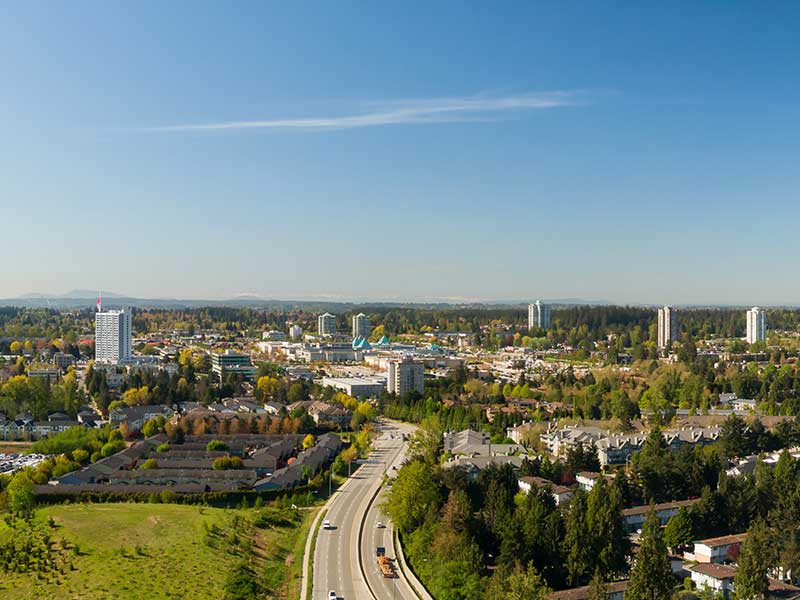
This article appears in the September 2022 issue of Investment Executive. Subscribe to the print edition, read the digital edition or read the articles online.
By about 2030, the rapidly expanding suburb of Surrey is expected to have vaulted past neighbouring Vancouver as British Columbia’s largest city. But to say this expansion has caused growing pains is an understatement.
For years, the once rural suburb was the butt of Lower Mainland jokes, known best for break-ins and robberies as young families migrated south across the Fraser River to escape Vancouver’s higher housing costs.
Fast-forward to today and Surrey’s growth has reached critical mass for major cities in terms of population (568,322) as well as technology and business development that includes skyscrapers and a vibrant city centre.
Not surprisingly, Surrey’s RCMP detachment also has grown to become Canada’s largest. But its 800-member constabulary often is still challenged in keeping Surrey households and businesses safe.
However, this policing picture is changing — dramatically — because Surrey is now in the midst of replacing the RCMP with its own police service, built from scratch, despite strong local opposition.
Supporters of the transition say Surrey is a big city now and it’s better to have a homegrown and controlled police force than one ruled from Ottawa. Opponents argue the RCMP does a good job and a homegrown force will cost an estimated $250 million extra over the coming decade.
Regardless, the transition is well underway and some warn it may already be too far along to reverse.
But we won’t know for sure until after British Columbia-wide municipal elections on Oct. 15, in which Surrey policing will be a major issue.
At the centre of this storm is incumbent Mayor Doug McCallum, a headstrong politician who won in 2018 by promising to replace the RCMP with a homegrown force. He subsequently pushed through the transition by shutting down opposition or simply refusing to listen or act on citizen concerns. But he does have the B.C. government’s OK, as is required.
McCallum’s controversial behaviour in office has drawn several strong opponents into the mayoral race: incumbent Liberal MP Sukh Dhaliwal, ex-NDP MP and MLA Jinny Sims, ex-Liberal MP Gordie Hogg and current Surrey Councillor Brenda Locke.
However, not all McCallum’s heavyweight opponents are against dumping the RCMP. Only Locke promises to stop the transition, but she’ll need Victoria’s OK to do it.
McCallum’s off-hours conduct also hasn’t helped him. As the policing issue raged last year, he became involved with an RCMP supporter in a Surrey parking lot. The mayor subsequently claimed that his foot had been run over by a car in the altercation, but he was later charged with public mischief, which involves falsely reporting a crime to police. That trial begins two weeks after the election.
In the meantime, the Surrey Police Service now has a police chief, an overseeing police board and civilian staff, and expects to have more than 300 pairs of boots on the ground by year-end as they jointly police Surrey with the RCMP in Phase 1 of the transition, which ends next May.
But the process is about a year behind schedule and the Surrey Board of Trade and others now call for more cost transparency from a post-election Surrey council.
Advisor chargebacks are bad for the industry
The CSA is considering a ban on the practice